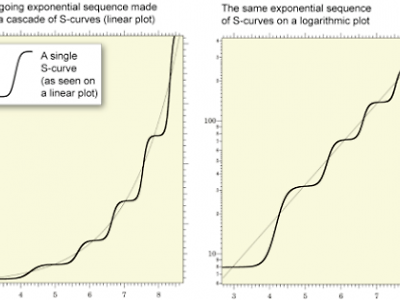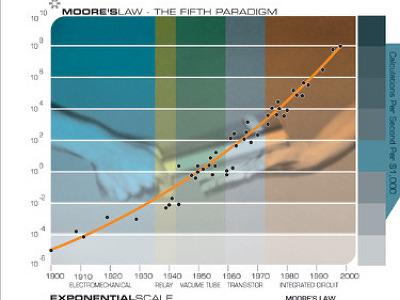본문
Ecce Homo - WHY I AM SO CLEVER #9
At this point, I can no longer get around giving the proper answer to the question 'how one becomes what one is'.
이 시점에서 나는, '어떻게 해서 한 사람이 그 자신으로서 되어가는가?'하는 문제에 대해서 직접적으로 대답해야 하겠다.
And with that, I touch on the masterpiece in the art of self-preservation — selfishness...
그리고 이 대답을 함에 있어서 나는, 자기 보존을 위한 기술인, '이기'라는 걸작을 마주하게 된다.
For assuming that the task, the destination, the destiny of the task is significantly beyond the average measure, then there would be no greater danger than to catch sight of oneself with this task.
임무, 사명, 임무의 운명이 지나치게 정도를 벗어난 상황에서, 이러한 임무와 함께하는것은 매우 위험한 일이다.
That 'one becomes what one is' presupposes that one does not have the remotest idea 'what one is'.
'그 자신으로 되어가는것'은 '자신이 본래 무엇인가'에 대해서는 전혀 알지 못한다는것을 전제로 하고 있다.
From this point of view, even life’s blunders have their own meaning and value, the temporary by-ways and wrong ways, the delays, the “modesties,” the seriousness wasted on tasks which lie outside the task.
이러한 관점에서 볼때, 여러가지의 인생의 실수까지도 그 독특한 의미와 가치를 가지게 된다. 즉 일시적인 외도와 착오, 지연, "겸손", 평생의 임무가 아닌 여러가지 임무에 낭비되었던 진지함에는 제각기에 의미와 가치가 있다는 것이다.
Therein a great prudence, perhaps the highest prudence, comes to be expressed:
where 'nosce te ipsum' would be the recipe for disaster, forgetting oneself, is understanding oneself, reducing oneself, narrowing oneself, mediocratizing oneself becomes good sense itself.
이런 와중에서, 하나의 거대한 지혜, (아마) 최고의 지혜가 나타나게 된다:
'너 자신을 알라'라는, 파멸으로 향하는 길에 서있을 때에는, '자기자신를 잊어버리는 것, 자신을 오해하는 것, 자신을 가볍게 하는것, 자신을 좁게 하고 평범하게 하는 것'이 판단의 기준이 된다는 것이다.
In moral terms: neighborly love, living for others and other things can be a protective measure for the maintenance of the most vigorous selfhood.
'이웃에의 사랑, 다른 사람과 다른 것을 위한 삶'이라는 도덕적인 표현은, 가장 완고한 이기성을 보존하는 보호수단이 될 수 있다.
This is the exceptional case in which I take the side of the “selfless” drives, as opposed to my own rule and conviction:
here they labor in the service of 'selfishness', of 'self-discipline'. — The whole surface of consciousness — consciousness is a surface — must be kept clear of any of the great imperatives.
이것은 내가 나의 원칙과 신념에 반대하여, '이타적' 충동을 변호하고 있는 예외의 경우이다:
그것들은 '이기'와 '자기수양'을 위한 것이다. 어떻든간에, 의식의 전 표면은-의식이란 하나의 표면이다- 어떠한 커다란 명령에서도 해방되어 있어야 한다.
Caution even before every grand word, every grand posture!
모든 놀라운 말, 놀라운 몸짓에도 주의를 해야 한다!
Pure dangers that the instinct will come to “understand itself” too early — . In the meantime the organizing “idea,” summoned to rule, is growing and growing in the depths — it begins to command, it slowly leads back out of the 'by-ways' and 'wrong ways', it prepares individual qualities and abilities beforehand which will prove indispensable as means to a whole — one by one it develops all the 'serving capacities' before any mention of the 'dominating task', the “goal,” the “end,” the “meaning.” — Viewed from this angle, my life is simply wonderful.
본능이 그 자신을 너무나도 빨리 '자각'하게 되는것은 위험한 것이다.- 그러한 사이에 점점, 그 조직력 있는, 지배할 수 있는 힘이 있는 '관념'이라는 것이 그 밑에서부터 자라나게 된다. - 그것은 명령하기 시작하고, 한 사람을 서서히 '외도'와 '착오'로부터 되돌려놓는다. 또한, 한 사람의 전체를 이루는데 없어서는 안될 개개의 성질과 능력을 미리부터 준비한다. -그것은 '주도적 임무', '목표', '목적', '의미' 등, 이런말에 관해서 언급하기도 이전에, 먼저 모든 '종속적 능력'을 점차 만들어 나간다. - 이런 입장에서 보면 내 평생은 그저 놀라울 뿐이다.
For the task of the 'revaluation of all values', more capacities were necessary perhaps than have ever dwelt together in one individual: 'opposing capacities' above all, as well, except that they were not allowed to disturb or destroy one another.
'가치의 전환'이라는 임무에는, 한 개인이 지녀온 (서로간에 조화된)능력보다도 보다도 더 많은 능력이 필요하다: 특히, 여기에는 서로간에 투쟁하고 파괴하는, '대립되는 여러가지 능력' 또한 필요하다.
An order of rank among capacities; distance; the act of separating without making an enemy; confusing nothing, “reconciling” nothing; a tremendous multiplicity which is nevertheless the antithesis of chaos — this was the preliminary condition, the long, secret labor and artistry of my instinct.
능력의 위계질서화; 거리감; 적을 만들지 않으면서 구분/분리하는 행위; 사물을 혼동하지 않는 것; 타협하지 않는 것; 놀라울 만큼의 다양성(단, '혼돈'과는 대조되는 개념으로서) -이것이 나의 전제조건이자, 오랜, 숨은 노작(labor)이었으며, 예술가적 기질이었다.
Its 'higher protection' was shown to a strong degree, by the fact that in no case did I have a presentiment of what was growing in me — that all of my facilities, suddenly ripe, leapt forth one day in their final perfection.
이 본능의, 보다 '높은차원의 보호'는 매우 강하게 나타나, 나는 언제나 무엇이 내 안에서 성장하고 있는가를 꿈에도 알지 못했다. -나의 모든 능력은 어느 날 갑자기 무르익어, 최고로 완선된 상태로 튀어 나왔던 것이다.
I fail to remember ever having made an effort — no trace of struggle is detectable in my life, I am the opposite of a heroic nature.
나는 한번도 고생하였다는 기억은 없다- 내 평생에는 조금도 투쟁의 흔적이 없다. 나는 영웅적 천성과는 거리가 멀다.
To “want” something, to “strive” for something, to have an “end,” a “desire” in mind — I know none of this from my experience. Even at this moment I look out upon my future — a broad future! — as upon a smooth sea: no desire ripples upon it.
무엇을 '원한다'든가 무엇을 향하여 '노력한다'든가, 하나의 '목적', 하나의 '열망'을 갖는다는가 - 나의 경험에서는 이런 면들을 발견할 수는 없다. 지금 이 순간에 있어서도 나는 자신의 미래를 -아득한 미래를- 마치 (어떠한 갈망도 튀어나오지 않는) 잔잔한 바다처럼 바라보고 있다.
Not in the least do I want anything to be different from what it is; I myself do not want to be any different...But thus I have always lived.
나는, 내 본래와는 다른 그 무언가로 되는 것을 조금도 바라지 않는다. 나 자신 다른 것으로 되고 싶은 마음은 조금도 없다... 그러나 나는 언제나 이렇게 살아 왔다.
Not a thing have I wished for. Someone who in his forty-fourth year can say that he has never troubled himself over honors, women, or money! — Not that I wanted for them...Thus, for example, I one day became a university professor — I had never had the slightest thought about it, for I was hardly twenty-four years old.
나는 아무런 소망도 가진 적이 없었다. 누군가는 그의 44세에, '명예를 위해서, 여자 때문에, 돈을 위해서 걱정했던 적이 없다'고 말할 수 있다! -나는 그런것들을 원해본 적이 없었다.. 고로, 예를들자면, 어느날 나는 대학 교수가 되어있었다 - 고작 24세였던 나는, 이에 관한 어떠한 생각도 해본적이 없었던 것이다.
Thus, two years earlier, I one day became a philologist: in the sense that my first philological work, my beginning in every sense, was requested for publication by my master Ritschl in his Rheinisches Museum
이런식으로, 그 2년전에는 나는 어느날 문헌학자가 되어있었다: 이렇게 말하는 것은, 모든 면에서 볼때 나의 출발점인, 나의 최초의 문헌학 논문이 나의 스승 Ritschl에 의해, 그의 Rheinsches 박물관에서 출간되기를 요청받았기 때문이다.
(Ritschl — I say it with reverence — the only scholar of genius my eyes have beheld to this day. He had that pleasant depravity which distinguishes us Thuringians and by which even a German becomes sympathetic — we ourselves prefer the secret by-paths for arriving at the truth. With these words I have no desire whatsoever to undervalue my close countryman, the intelligent Leopold von Ranke...).
==========================
1976년에 박영사에서 출간된 '이 사람을 보라'를 가지고 있다. 철학을 전공하신 삼촌덕분에 집에 이런 책들이 쌓여있어서 매우 어린시절부터 니체의 사상을 접하기 시작하였다. 기독교적 집안에서 '니체'라는 금기시되는 단어였으며, '광인'과 '염세주의'라는 명목으로 독서는 제한을 받아왔다. 하지만 하지 말라고 하면 더 하고싶은건 당연지사! 따라서 더욱 더 열심히 읽기 시작하였고, 그당시의 값진 경험은 지금의 나를 만들어 왔다.
니체의 저서를 철학서, 문학작품등으로 평가하기도 하지만, 나로서는 너무나도 철학적이고 문학적인 '자기개/계발서'로 여겨져왔으며, 요새는 공감과 치유의 기쁨을 제공하는 니체라는 '장르'로 인식하고 있다. 물론 더 잘 된 최신 번역서가 많은 만큼 그것들을 읽어보아야 겠지만, 우선은 이 책에서 (영어버전에 따르면)오역한 부분이 있는것 같아 여기에 나름대로의 맛을 가미하며 옮겨보았다. (다행히) 나의 삶 또한 위의 내용과 상당히 일치하며, 또한 굵은 글씨로 놓은 부분은 '내가 사는 방법'이라 말할 수 있다. 본문은 아래 링크에서 찾아볼 수 있다.
http://philosophy.thecastsite.com/readings/nietzsche4.pdf
* 옮긴것 역시 오역이 존재할 수 있으므로 어떠한 조언이라도 남겨주시면 감사하겠습니다.(예를 들어, 'how one becomes what one is'는 이 책의 부제로서, 책에는 '어떻게 해서 사람은 본래 있는것이 되는가'라고 하고 되어있지만 이를 수정하였습니다.)


댓글